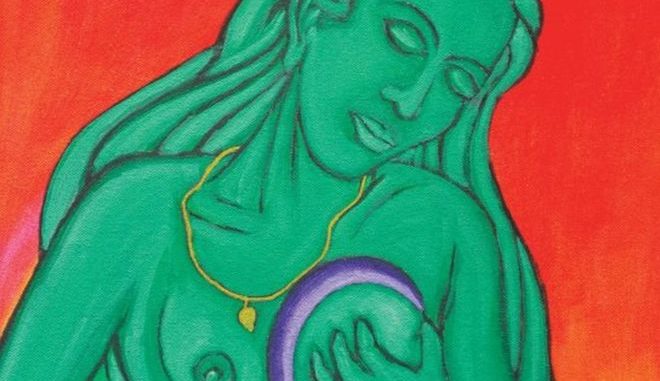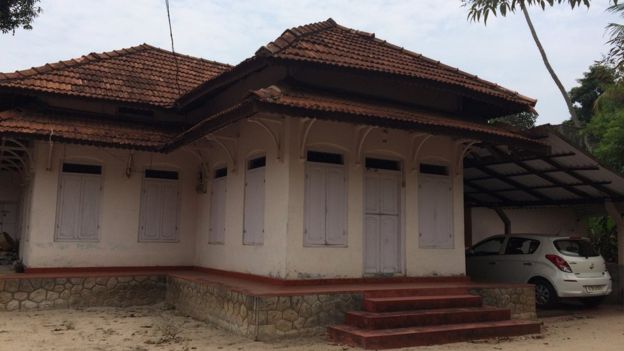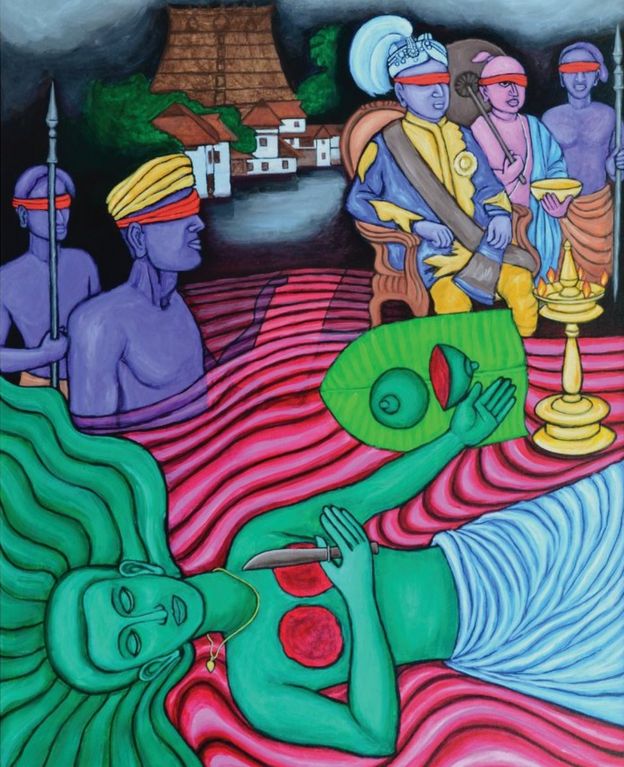
The story of a lower caste woman who cut her breasts to protest against a discriminatory “breast tax” in British ruled India is being revived by an artist wants to recognise her sacrifice. BBC Hindi’s Divya Arya reports from the south Indian state of Kerala.
The story of Nangeli may never have been known, but for a chance discovery.
Four years ago, artist Murali T was flipping through an in-house magazine of a local bank, when he stumbled on a small report about Nangeli, written by a native from her area, Cherthala.
Intrigued by the story, he made his way to the small sleepy town.
“I spent a lot of time with the local people of Cherthala and even found the locality where Nangeli is believed to have lived over 100 years ago.

“It was called Mulachhipuram or the land of the woman with breasts, named to remember Nangeli’s great sacrifice against the breast-tax,” he told the BBC.
It is a village tale that is not officially recognised in any of India’s historical accounts.
But the story of Nangeli is much loved by her local villagers – and now Murali T hopes to document it and have it recognised as part of Kerala’s history by the government.
Reinforcing caste structure
The “breast-tax” had been imposed by the king of the erstwhile State of Travancore, one of the 550 princely States that existed in British ruled India.
Women from lower castes were not allowed to cover their breasts, and were taxed heavily if they did so.
“The purpose of the breast-tax was to maintain the caste structure,” said Dr Sheeba KM, an associate Professor of gender ecology and Dalit studies at the Shri Shankaracharya Sanskrit Vishwavidyalaya in Kerala.
Social customs on clothing were tailored to a person’s caste status, which meant that they could be identified merely by the way they dressed.

Nangeli belonged to the Ezhava caste. Her community was required to pay the tax along with other lower castes like the Thia, Nadar and Dalit communities.
But, villagers say, she decided to protest by covering her chest without paying the breast-tax – a brave move in the early 1900s for a woman of lower caste status.
Our auto rickshaw driver Mohanan Narayan takes us to the neighbourhood where Nangeli lived.
“When the tax inspector heard she was refusing to pay the tax, he went to her house to ask her to stop breaking the law. But she still refused to pay the tax, and cut her breasts off in protest instead,” he says.
According to local villagers, Nangeli died of excessive blood loss, while her distraught husband committed suicide by jumping into her funeral pyre. The couple had no children.
Her relatives moved out of Mulachhipuram to nearby towns and hamlets.
Recognising sacrifice
Maniyan Velu, her cousin’s great-grand-son, says he feels upset that Nangeli’s story is not more widely known.
“Her act was selfless, a sacrifice to benefit all the women of Travancore, and ultimately forced the King to roll back the breast-tax,” he says.
An old man, Maniyan owns no land, and his children work as farm labourers. But he is not looking for charity, only some recognition.
“We feel so proud that we are her family. All we want is that more people should know about her sacrifice. It would be befitting if her name was made a part of this region’s history,” he tells the BBC.
Murali T hopes to make that happen.
He was so moved by Nangeli’s story and the absence of any visual documentation that he decided to paint a likeness of the violent act she brought upon herself.
“I did not want to depict it as a bloody event; instead my aim was to glorify her act as an inspiration to humanity, a representation that would command respect,” he said.
His three paintings of Nangeli have now been published in his book, Amana – The Hidden Pictures of History, this year.
He has also held 15 exhibitions of his paintings across Kerala and now plans to hold one in a public place in Cherthala.
“If I can get the people of that area to take notice, that may help convince the government to include this important act as part of our official history.”
Source: BBC
